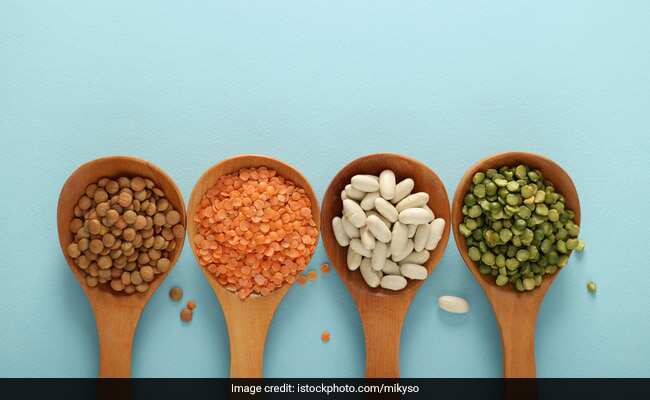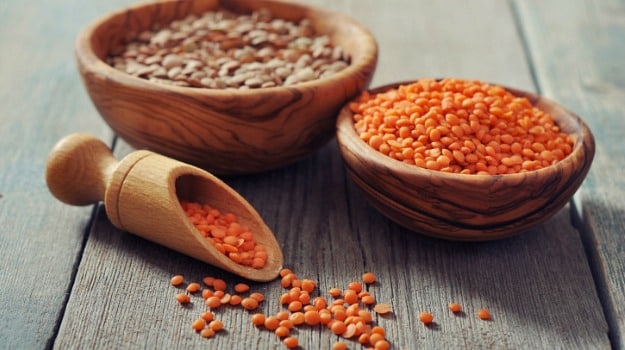World Pulses Day: Pulses are one of the primary sources of protein for vegetarians. And not just protein, pulses are also a rich source of fibre, healthy carbs, vitamins and minerals that are important for your overall health and well-being.

World Pluses Day: Pulses are a great source of vegetarian protein
HIGHLIGHTS
- Pulses are a great source of vegetarian protein
- They are also rich in fibre, iron and folate
- Pulses are low in calories and can be included in weight loss diet
World Pulses Day is observed on February 10. Agree or not, but you simply cannot do without pulses! Dal, as it is referred to in Hindi, is a staple in the Indian cuisine. In every household, a variety of dals are bought as part of monthly grocery shopping. One tends to get bored with the humble dal every now and then. But, you also get back to this staple food because it time-tested, filling and nourishing in nature. On this World Pulses Day, we are going to talk about the importance of eating pulses in your diet and the many ways you can eat dal.
World Pulses Day: Health benefits of including pulses in your diet
Pulses are one of the primary sources of protein for vegetarians. And not just protein, pulses are also a rich source of fibre, healthy carbs, vitamins and minerals that are important for your overall health and well-being.

Pulses are a rich source of vegetarian protein
Photo Credit: iStock
Celebrity nutritionist Rujuta Diwekar says that there are more than 65,000 varieties of pulses (lentils) available and you should include a variety of them in your diet. Here are some benefits of eating dal every day:
1. Lentils, be it green, black, yellow or red, are a rich source of iron, folate and are an excellent source of protein. Protein is required for not just weight loss but also for building muscles.
2. Pulses also contain polyphenols which contain antioxidant and anti-inflammatory properties that can reduce damage caused free radicals in the body.
3. Lentils have been found to be beneficial for heart health as well. They are weight loss-friendly and help in improving cholesterol and blood pressure levels in the body.
Dal or lentils are usually cooked in a pressure cooker. They are then prepared with a tadka made up of onion, tomatoes and spices. A dollop of ghee over your dal is what completes this wholesome food. You can have it with white rice (yes, you read that right) and it will make for a meal with a complete amino acid profile.
Also read: Having Rice For Dinner? Here's What Rujuta Diwekar Has To Say About It
Other ways to include lentils in your diet are sprouts, lentil soups or khichdi. Also, you can create metkut, which is made from a dry mix of pulses and spices like haldi, soonth etc.
Diwekar takes to Instagram to talk about metkut rice. You can sprinkle metkut on hot rice, and some ghee to it and enjoy guilt-free. According to the celeb nutritionist, the combination of dal rice (metkut) is a meal with a complete amino acid profile. It is easy to prepare and can work as a great substitute to the otherwise monotonous dal rice.
Metkut rice can be good for kids and patients suffering from chronic diseases and cancer treatment. Cancer patients experience a loss of appetite and metkut rice can help with it. This meal can also help in reducing constipation.
Also read: Adding Enough Fiber To Your Diet Can Help Deal With Constipation Effectively
This World Pulses Day, pledge to eat pulses regularly. They are amongst those rare foods which you can have every day, without worrying about your weight or health. Happy World Pusles Day everyone!
(Rujuta Diwekar is a nutritionist based in Mumbai)
Disclaimer: This content including advice provides generic information only. It is in no way a substitute for qualified medical opinion. Always consult a specialist or your own doctor for more information. NDTV does not claim responsibility for this information.
DoctorNDTV is the one stop site for all your health needs providing the most credible health information, health news and tips with expert advice on healthy living, diet plans, informative videos etc. You can get the most relevant and accurate info you need about health problems like diabetes, cancer, pregnancy, HIV and AIDS, weight loss and many other lifestyle diseases. We have a panel of over 350 experts who help us develop content by giving their valuable inputs and bringing to us the latest in the world of healthcare.














